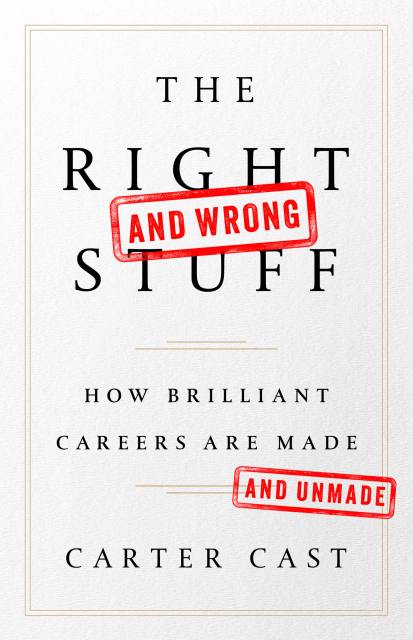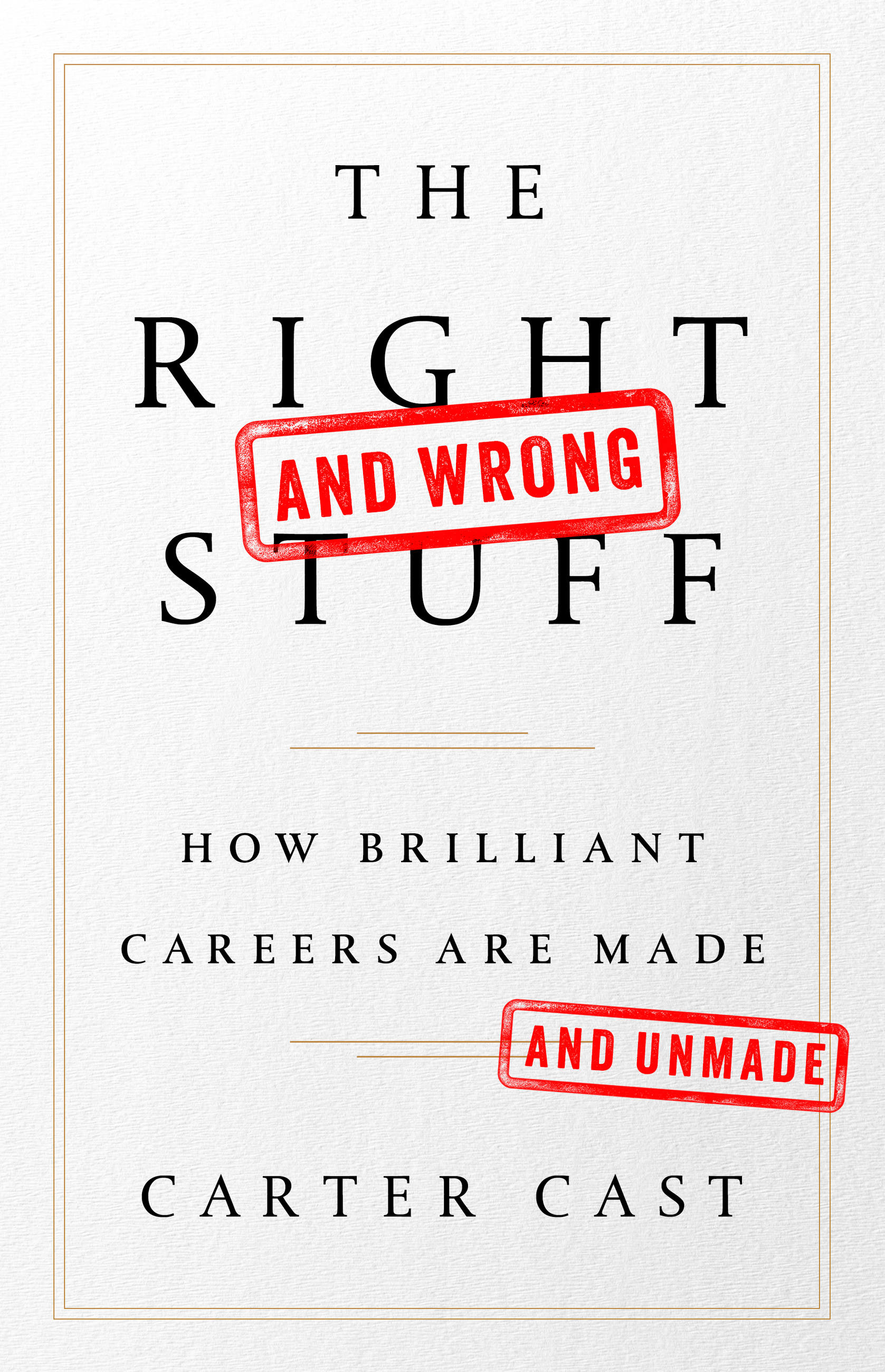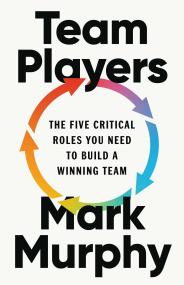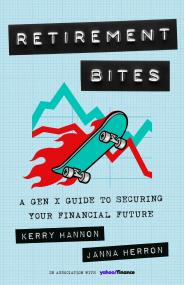By clicking “Accept,” you agree to the use of cookies and similar technologies on your device as set forth in our Cookie Policy and our Privacy Policy. Please note that certain cookies are essential for this website to function properly and do not require user consent to be deployed.
The Right-and Wrong-Stuff
How Brilliant Careers Are Made and Unmade
Contributors
By Carter Cast
Formats and Prices
- On Sale
- Jan 9, 2018
- Page Count
- 288 pages
- Publisher
- PublicAffairs
- ISBN-13
- 9781610397100
Price
$17.99Price
$22.99 CADFormat
Format:
- ebook $17.99 $22.99 CAD
- Hardcover $28.00 $36.50 CAD
- Audiobook Download (Unabridged)
This item is a preorder. Your payment method will be charged immediately, and the product is expected to ship on or around January 9, 2018. This date is subject to change due to shipping delays beyond our control.
Buy from Other Retailers:
The Right — and Wrong — Stuff is a candid, unvarnished guide to the bumpy road to success. The shocking truth is that 98 percent of us have at least one career-derailment risk factor, and half to two-thirds actually go off the rails. And the reason why people get fired, demoted, or plateau is because they let the wrong stuff act out, not because they lack talent, energy, experience, or credentials.
Carter Cast himself had all the right stuff for a brilliant career, when he was called into his boss’s office and berated for being obstinate, resistant, and insubordinate. That defining moment led to a years-long effort to understand why he came so close to getting fired, and what it takes to build a successful career.
His wide range of experiences as a rising, falling, and then rising star again at PepsiCo, an entrepreneur, the CEO of Walmart.com, and now a professor and venture capitalist enables him to identify the five archetypes found in every workplace. You’ll recognize people you work with (maybe even yourself) in Captain Fantastic, the Solo Flyer, Version 1.0, the One-Trick Pony, and the Whirling Dervish, and, thanks to Cast’s insights, they won’t be able to trip up your future.
-
"This relatable career manual should inspire plenty of white-collar professionals to work on serious self-accounting, take responsibility for their own mistakes, and form support teams of friends, managers, and mentors."Publishers Weekly
-
"Solid, positively delivered advice for job seekers and job holders everywhere."Kirkus
-
"Warning: Your career might be in danger of going off the rails. You probably have blind spots that are leaving you closer to the edge than you realize. Fortunately, Carter Cast has the solution. In this smart, engaging book he shows you how avoid career derailment by becoming more self-aware, more agile, and more effective. This is the book you wish you had 20 years ago, which is why you should read it now."Daniel H. Pink, author of Drive and To Sell Is Human
-
"Talent and drive aren't enough to prevent your career from derailing. After spending years exploring what causes people to stall or fall off the ladder, Carter Cast offers a book that's honest and actionable. Think of it as a mirror to help you see your blind spots."Adam Grant, New York Times bestselling author of Give and Take, Originals, and Option B (with Sheryl Sandberg)
-
"Do your career a favor and read Carter Cast's new book. It's practical, thought-provoking, and funny - and it might just stop you from derailing when you least expect it."Dan Heath, co-author of best sellers Made to Stick, Switch and Decisive
-
"Carter Cast breaks the mold for professor/practitioners with The Right and Wrong Stuff. The book reveals a unique set of 5 career detailed archetypes which ring true, clear tips for accelerating your career, and page-turning stories of career success and failure."Dr. Geoff Smart, Chairman & Founder of ghSMART and New York Times bestselling author of Who
-
"This insightful and lively book is a pragmatic 'must-read' for all those aspiring to the C-suite. Carter brilliantly translates his grounded wisdom and classroom mastery onto the written page."Sally Blount, Dean, Kellogg School of Management at Northwestern University
-
"People tend to assume that careers are just about trajectory. They're really about knowing your strengths and weaknesses, then finding environments where you can adapt and flourish. Carter's insights are based on real-world experiences. This book will help so many people to have the right career conversations to build their own Right Stuff."Gary Briggs, Chief Marketing Officer, Facebook
-
"The most neglected fact in business is we're all human. Carter's brilliant, candid exploration of how self-awareness can make you a better leader should be required reading for managers at all levels of any organization. Know your blind spots and you'll have a very bright future."Chip Conley, Hospitality Entrepreneur and Bestselling Author
-
"Carter's ability to demystify and shine a light on why talented people stumble is a gift to anyone trying to progress in their career. Carter's blend of no-nonsense, practical advice delivered with a good dose of humor makes The Right and Wrong Stuff a leadership book you'll actually enjoy reading while you are learning something."Laila Tarraf, former Chief People Officer, Peet's Coffee
-
"In The Right (and Wrong) Stuff, Carter Cast offers an insightful exploration of the primary ways high potential professionals can get off track in their careers and then provides a road map to success for those who are willing to put in the work. I highly recommend it anyone who is serious about making the most of their career."Mike Gamson, Senior Vice President, Global Solutions, LinkedIn
-
"In The Right (and Wrong) Stuff, Carter Cast has managed to combine a wealth of personal leadership experience in some of America's best-performing companies with some serious research into what makes for a successful career. Add a big dose of humility and humanity, and the result is a field guide to building your skills and leading your career that you need to have at arms-reach. It will become a dog-eared companion on your journey to career growth and well-being."Brock Leach, former CEO of Tropicana and Frito Lay North America
-
"For anyone, at any level, that really wants to understand and traverse the 'leadership journey' (including the inevitable ups and downs), Carter Cast delivers it in his first book in an honest, transparent manner. He is one of a very few practitioners and professors that can truly change your life. Knowing him has changed my life."Harry Kraemer, Jr, former Chairman and CEO of Baxter Intl, Executive Partner, Madison Dearborn Partners
-
"In The Right and Wrong Stuff, Carter provides valuable insights for both individual career development and organizational effectiveness. His broad range of professional experiences, situational awareness and interest in people and their development, gives him a perceptive and unique perspective."John Fleming, CEO, Global eCommerce, Uniqlo
-
"Are you playing the right role at work? It may just be that the golden parts of your personality are precisely what are causing shadows to fall on your career. Carter Cast is a wise guide on how to get in sync with what the team around you is expecting from you."Seth Godin
-
"What about you could hurt your career? A blind spot? A skill gap? Carter Cast helps you to answer this in The Right and Wrong Stuff. He's a refreshingly original voice on a tough topic. His book will make you think differently about managing your career."Marshall Goldsmith, The Thinkers 50 #1 Leadership Thinker in the World
Newsletter Signup
By clicking ‘Sign Up,’ I acknowledge that I have read and agree to Hachette Book Group’s Privacy Policy and Terms of Use







